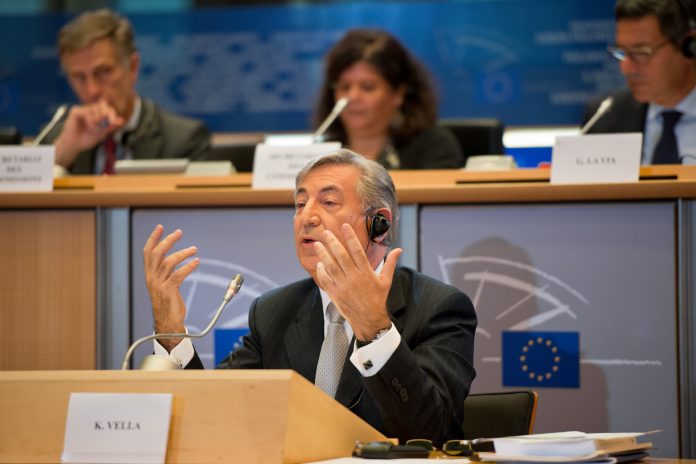The European Commission has proposed new measures to combat water scarcity and help farmers reuse water.
The commission is looking to develop the circular economy in its member states. Non-potable water will be harnessed and treated for farmers to use in agricultural irrigation, in a move which the commission says will not only benefit farmers but the environment as well.
“This proposal will create only winners. Our farmers will have access to a sustainable supply for irrigation water, our consumers will know the products they eat are safe, and our businesses will see new opportunities,” said Karmenu Vella, European Commissioner for Environment, Maritime Affairs and Fisheries.
“The biggest winner of them all will be our environment as the proposal contributes to better management of our most precious resource–water.”
The proposals from the commission include minimum requirements for the reuse of treated wastewater, ensuring its safety in irrigation. Further risk management is proposed to address any other potential water safety risks.
Greater public involvement is also needed. The commission recommends citizens of member states be given access to information on the practice of water reuse, helping to act as an educational tool for European citizens, many of whom could be directly affected by the overuse of freshwater resources.
The commission says that current levels of water reuse are not good enough, and that increasingly unstable weather patterns in the context of climate change have heightened the need to urgently protect water resources.
The proposal completes the existing EU legal framework on water and foodstuffs, forming part of the Commission’s 2018 Work Programme. A key aim of transitioning to a circular economy constitutes a cornerstone of these proposals, and it is hoped this will lead to a reduction of total EU land suffering from water stress–currently standing at one third.
The measures will also assist the EU come closer to completing the UN’s Sustainable Development Goal Six, on water and sanitation.








